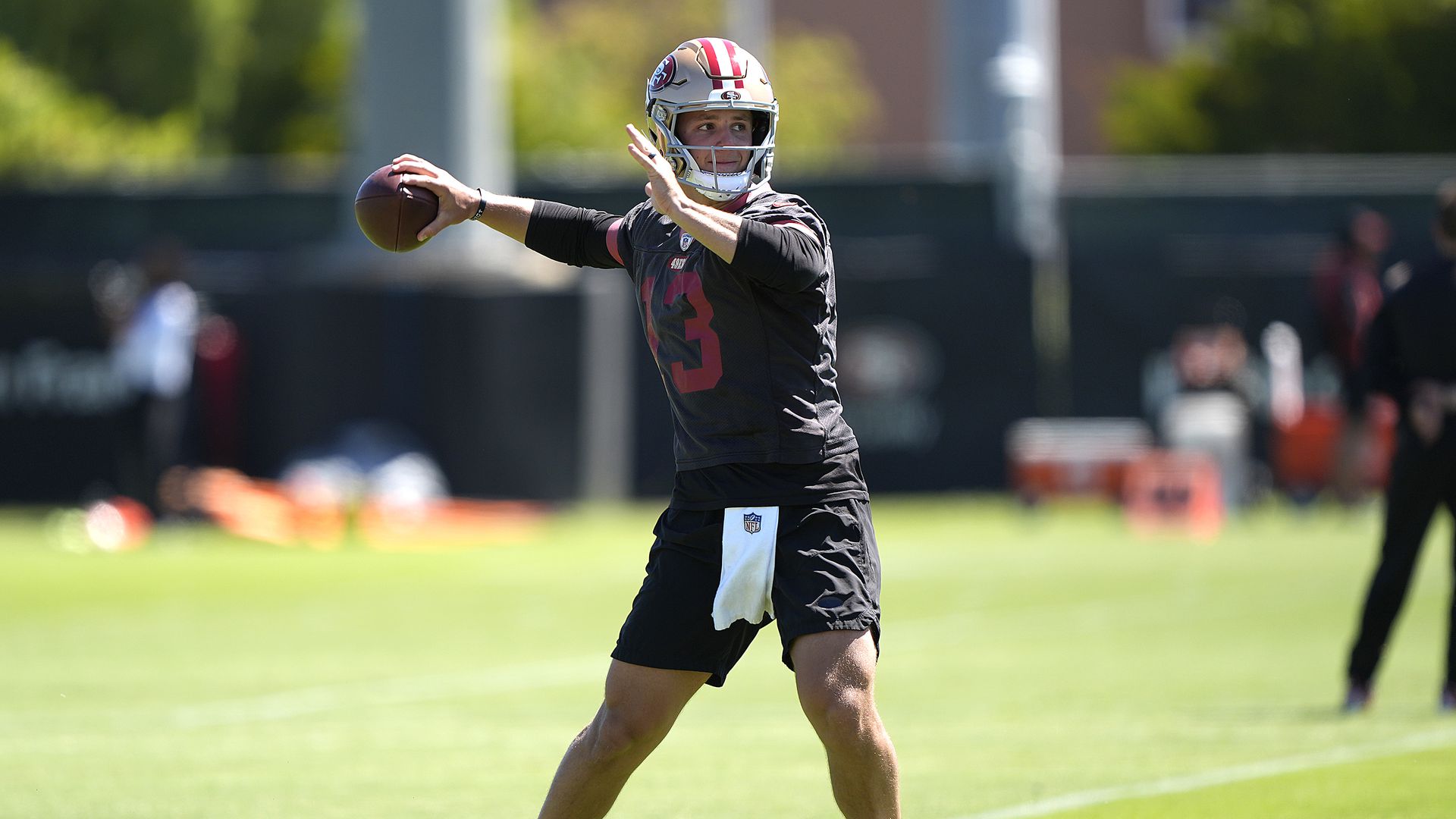
WHY THE NFL’S SUNDAY TICKET LAWSUIT COULD IMPACT 49ERS QB BROCK PURDY’S EXTENSION
On Thursday, the NFL was ordered to pay over $4 billion in damages to commercial and residential parties for antitrust violations involving the league’s NFL Sunday Ticket package. Since this is a federal antitrust lawsuit, those damages can triple, and the $4 billion could be north of $12 billion when it’s all said and done.
It may not sound like a big deal, but the league’s revenue stream was $19 billion in 2023. The NFL’s Sunday Ticket package also pays the league $2 billion annually, which is about half of what FOX and CBS pay for their rights to Sunday afternoon games. There’s a chance the NFL could see its revenue stream plummet in a hurry.
The NFL will almost assuredly appeal the decision. The league put out a word salad statement on Thursday after the news of what they owed broke, per Pro Football Talk:
“We are disappointed with the jury’s verdict today in the NFL Sunday Ticket class action lawsuit. We continue to believe that our media distribution strategy, which features all NFL games broadcast on free over-the-air television in the markets of the participating teams and national distribution of our most popular games, supplemented by many additional choices, including RedZone, Sunday Ticket, and NFL+, is by far the most fan-friendly distribution model in all of sports and entertainment. We will certainly contest this decision as we believe that the class action claims in this case are baseless and without merit. We thank the jury for their time and service and for the guidance and oversight from Judge Gutierrez throughout the trial.”
Let’s play the hypothetical game and act as if the league’s appeal gets denied. That would be disastrous for teams, but, specifically, players on the brink of an extension.
The CBA sets the salary cap for each organization based on how much the NFL makes. As we’ve seen year over year, outside of outlier situations like COVID-19, they operate under the assumption that they will generate more revenue than the previous year, which is why we continue to see a rise in the salary cap.
The recent rise in the salary cap was due to the NFL's getting past the effects of the pandemic and closer to normal. But if its out-of-market NFL Sunday Ticket package, which is one of the league’s most profitable sources of money, gets the plug pulled, the NFL must have a way to pay a full year’s worth of revenue in damages.
If the NFL loses its appeal, the salary cap will nose dive and equal whatever the NFL’s payment of the lawsuit and its revenue stream is. The other outcome is a bit more extreme, and it is something that Dallas Cowboys owner Jerry Jones has proposed: getting rid of the salary cap once and for all.
The San Francisco 49ers believe they’ve found their franchise quarterback for the next decade plus. We’re an offseason away from Brock Purdy getting more money than anybody could’ve imagined. But how will the front office operate if they don’t know the ceiling or floor of the salary cap? That could depend on how long this lawsuit drags out.
If a resolution happens before the end of the regular season, then the problem is solved. The 49ers can’t pay Brock before then, so they’d act accordingly. But if the courts drag their feet and the case is still ongoing, heading into free agency, the 49ers could find themselves in a pickle.
Four quarterbacks are set to receive an extension in the near future. Two of them, Miami Dolphins Tua Tagovalioa and Dallas Cowboys' Dak Prescott have teams that seem hesitant to pay up. But the 49ers and the Green Bay Packers for Jordan Love don’t share the same concerns.
This time last week, it seemed simple. Purdy would likely receive anywhere between $55-60 million annually or in the ballpark of what Jacksonville Jaguars Trevor Lawrence received. The recent news surrounding NFL Sunday Ticket will determine what the team can give Brock, which was unforeseen a few days ago.
2024-06-28T18:05:49Z dg43tfdfdgfd